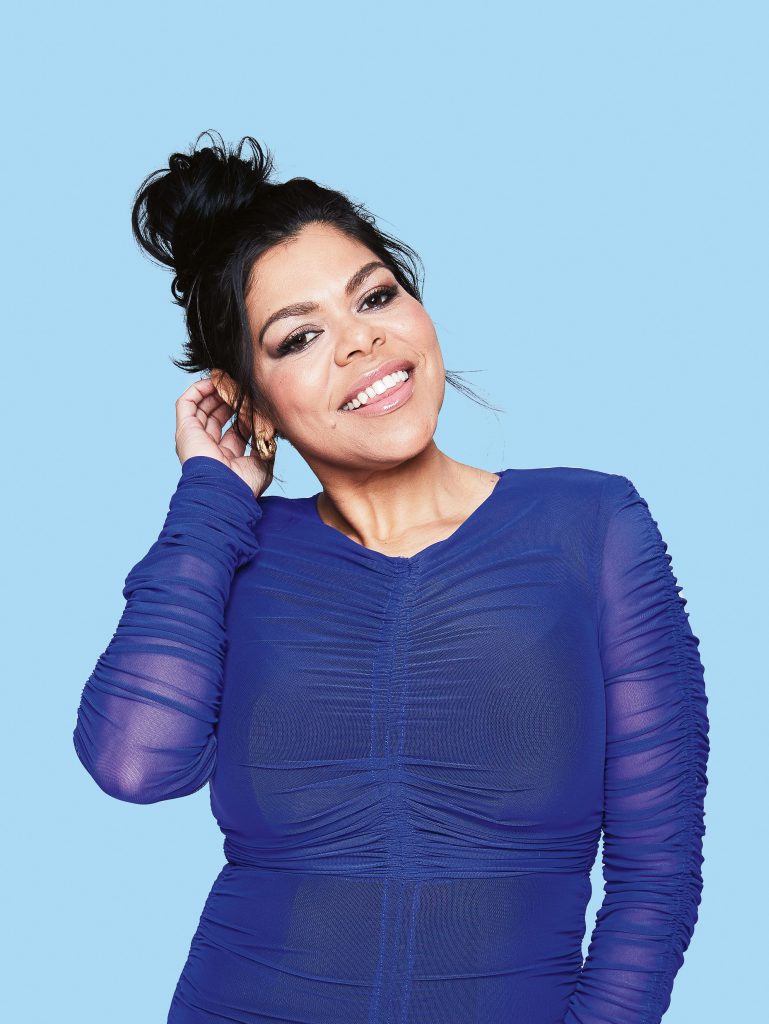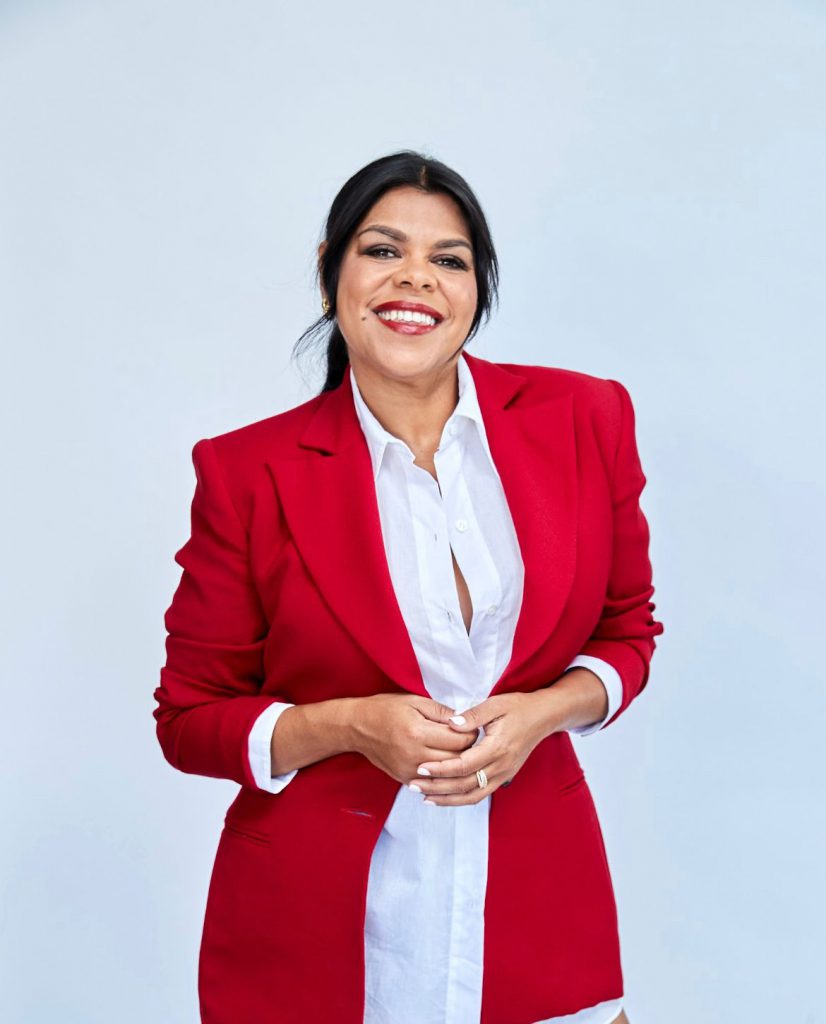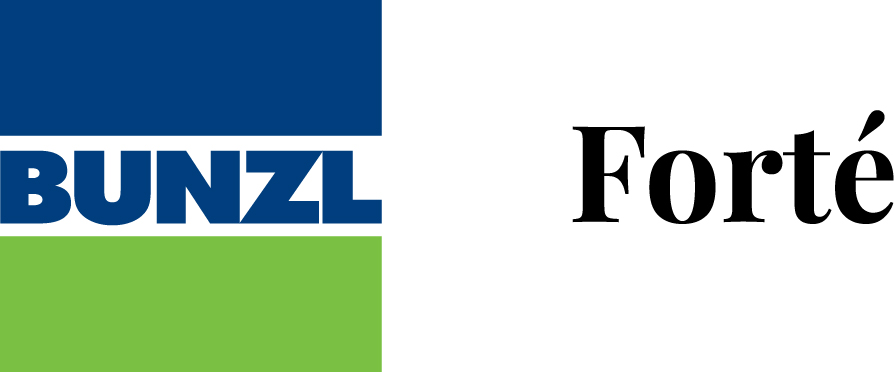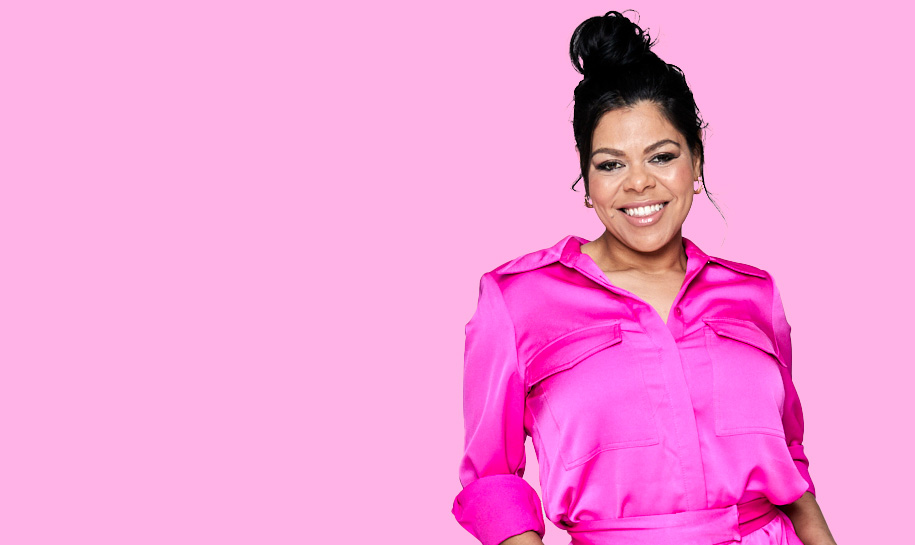When she was a kid, Dixie Crawford’s nickname was ‘Cyclone’. “It’s not that I was super loud,” remembers the Barkindji woman who now lives on Ngunnawal country in Canberra. “But people definitely knew when I was around. I wanted to make sure my voice was heard and that what I said had impact.”
This compulsion to speak up was nurtured by the Elders she grew up around in Brewarrina and later in Broken Hill. “They taught me that there’s a big difference between just saying things and saying things that mean something.”

Today Crawford is the founder of Nganya, an Aboriginal engagement and reconciliation consultancy, and still holds close those childhood lessons from her family. “I’ve worked hard to get a seat at the table and to maximise my presence. There are many who aren’t afforded the opportunity, and I don’t take that privilege lightly.”
Crawford spent sixteen years working in the public health sector across mental health and wellbeing, domestic violence, and paediatric care. She has been a front-line case worker and has been involved in policy design and implementation.
“My grandmother worked in education and my mum worked in health and they were both heavily involved in efforts to change those key social determinants around the lived experience of our communities,” says Crawford. “Some families have generations of lawyers or plumbers. We have generations of health and education workers.”
But, despite her impressive legacy in the public sector, Crawford found herself feeling held back from meeting her potential. “As a Black woman, I see a lot of unconscious bias play out around what I’m capable of and how my career might progress. I wanted to get into more rooms with people who are in positions of power or influence and help build their capacity to engage meaningfully with First Nations communities.”
“As a Black woman, […] I wanted to get into more rooms with people [with] influence and help [them] engage meaningfully with First Nations communities.”
Dixie Crawford, founder of Aboriginal engagement and reconciliation consultancy Nganya
And so, in 2018, Nganya was born. The word means firelight in Barkindji language and acts as a vivid symbol of the company’s mission to illuminate the reconciliation imperative and how businesses and leaders can meet that imperative. Nearly six years in, Nganya is a thriving business. But it wasn’t an easy start.
“If you want to find out how tough you are, run your own business!,” laughs Crawford. “You cannot be afraid to fail. A mentor once told me that to succeed in running your own business, you must be passionate enough about the problems you want to solve to handle the rejection that will come.”
Today Nganya is laser-focused on building the capacity of leaders and organisations to engage meaningfully with Aboriginal people and communities through education, employment, and procurement. Critical to that engagement is a Reconciliation Action Plan (RAP) which provides a scalable framework for organisations to explore ways to elevate the voices of First Nations people and drive equitable outcomes. “Part of my job is to help leaders know not just what they’re doing to deliver equitable outcomes but why they are doing it.”

As Crawford explains, that means looking beyond the visibility metrics that identify an organisation as a ‘good corporate citizen’, and actually doing the transformative and uncomfortable work of critical self-reflection. Discomfort will, she says, be an inevitable part of the process but it’s not something to shy away from. “We get so worried about offending people or saying ‘the wrong thing’ that we stay stuck in a safety zone – and that’s the zone of mediocrity. ”
Crawford relishes working side by side with leaders who aren’t afraid to lean into difficult conversations about racism and who are motivated to demonstrate the principles of reconciliation in their daily operations. “I’m not interested in holding people’s hands or doing reconciliation for organisations. My role is to enable them to see their true potential as an agent of change and to spark their curiosity to find out more about First Nations people.”
This sparking of curiosity is central to Crawford’s work. “When you roll out strategic and purposeful communication plans for your business over an extended period, you create consistent opportunities for your staff to become curious, aware, and engaged with learning more about First Nations cultures, histories, and communities. I don’t like mandatory cultural awareness training for organisations – it’s much more powerful if people come to it willingly.”
It’s a dedication to showing up that has seen Crawford working on a cultural capability training program. “It takes us beyond cultural awareness training and makes a call to action: what kind of leader do you want to be? Do you want to be known for what you did or what you didn’t do?”
“what kind of leader do you want to be? Do you want to be known for what you did or what you didn’t do?”
Dixie Crawford, founder of Aboriginal engagement and reconciliation consultancy Nganya
Bunzl’s Innovate Reconciliation Action Plan (RAP) launches in February. In the meantime, Crawford is returning to her Country to connect with family, to listen, and to stoke the fire of her passion for change so ‘nganya’ can keep lighting the way.










